- Home
- Dan Simmons
The Hyperion Cantos 4-Book Bundle
The Hyperion Cantos 4-Book Bundle Read online
Hyperion, The Fall of Hyperion, Endymion, and Rise of Endymion are works of fiction. Names, places, and incidents either are products of the author’s imagination or are used fictitiously.
A Ballantine eBook Edition
Hyperion copyright © 1989 by Dan Simmons
The Fall of Hyperion copyright © 1990 by Dan Simmons
Endymion copyright © 1995 by Dan Simmons
The Rise of Endymion copyright © 1997 by Dan Simmons
All rights reserved.
Published in the United States by Ballantine Books, an imprint of Random House, a division of Random House LLC, a Penguin Random House Company, New York.
BALLANTINE and the HOUSE colophon are registered trademarks of Random House LLC.
The novels contained in this omnibus were each published separately by Bantam Spectra, an imprint of Random House, a division of Random House LLC, a Penguin Random House Company, New York, in 1989, 1990, 1995, and 1997.
eBook ISBN: 9780804180580
www.ballantinebooks.com
v3.1
Contents
Cover
Title Page
Copyright
Hyperion
The Fall of Hyperion
Endymion
The Rise of Endymion
All of the characters in this book
are fictitious, and any resemblance
to actual persons, living or dead,
is purely coincidental.
This edition contains the complete text
of the original hardcover edition.
NOT ONE WORD HAS BEEN OMITTED.
HYPERION
A Bantam Spectra Book / published by arrangement with Doubleday
PUBLISHING HISTORY
Doubleday edition published June 1989
Bantam edition / March 1990
Bantam reissue / December 1995
SPECTRA and the portrayal of the boxed “s” are trademarks of Bantam
Books, a division of Random House, Inc.
All rights reserved.
Copyright © 1989 by Dan Simmons.
Library of Congress Catalog Card Number: 88-33407.
No part of this book may be reproduced or transmitted in any form or by any means, electronic or mechanical, or by any information storage and retrieval system, without permission in writing from the publisher.
For information address: Doubleday.
eISBN: 978-0-307-78188-8
Bantam Books are published by Bantam Books, a division of Random House, Inc. Its trademark, consisting of the words “Bantam Books” and the portrayal of a rooster, is Registered in U.S. Patent and Trademark Office and in other countries. Marca Registrada. Bantam Books, New York, New York.
v3.1_r6
Contents
Master - Table of Contents
Hyperion
Title Page
Copyright
Prologue
Chapter 1
Chapter 2
Chapter 3
Chapter 4
Chapter 5
Chapter 6
Epilogue
Dedication
PROLOGUE
The Hegemony Consul sat on the balcony of his ebony spaceship and played Rachmaninoff’s Prelude in C-sharp Minor on an ancient but well-maintained Steinway while great, green, saurian things surged and bellowed in the swamps below. A thunderstorm was brewing to the north. Bruise-black clouds silhouetted a forest of giant gymnosperms while stratocumulus towered nine kilometers high in a violent sky. Lightning rippled along the horizon. Closer to the ship, occasional vague, reptilian shapes would blunder into the interdiction field, cry out, and then crash away through indigo mists. The Consul concentrated on a difficult section of the Prelude and ignored the approach of storm and nightfall.
The fatline receiver chimed.
The Consul stopped, fingers hovering above the keyboard, and listened. Thunder rumbled through the heavy air. From the direction of the gymnosperm forest there came the mournful ululation of a carrion-breed pack. Somewhere in the darkness below, a small-brained beast trumpeted its answering challenge and fell quiet. The interdiction field added its sonic undertones to the sudden silence. The fatline chimed again.
“Damn,” said the Consul and went in to answer it.
While the computer took a few seconds to convert and decode the burst of decaying tachyons, the Consul poured himself a glass of Scotch. He settled into the cushions of the projection pit just as the diskey blinked green. “Play,” he said.
“You have been chosen to return to Hyperion,” came a woman’s husky voice. Full visuals had not yet formed; the air remained empty except for the pulse of transmission codes which told the Consul that this fatline squirt had originated on the Hegemony administrative world of Tau Ceti Center. The Consul did not need the transmission coordinates to know this. The aged but still beautiful voice of Meina Gladstone was unmistakable. “You have been chosen to return to Hyperion as a member of the Shrike Pilgrimage,” continued the voice.
The hell you say, thought the Consul and rose to leave the pit.
“You and six others have been selected by the Church of the Shrike and confirmed by the All Thing,” said Meina Gladstone. “It is in the interest of the Hegemony that you accept.”
The Consul stood motionless in the pit, his back to the flickering transmission codes. Without turning, he raised his glass and drained the last of the Scotch.
“The situation is very confused,” said Meina Gladstone. Her voice was weary. “The consulate and Home Rule Council fatlined us three standard weeks ago with the news that the Time Tombs showed signs of opening. The anti-entropic fields around them were expanding rapidly and the Shrike has begun ranging as far south as the Bridle Range.”
The Consul turned and dropped into the cushions. A holo had formed of Meina Gladstone’s ancient face. Her eyes looked as tired as her voice sounded.
“A FORCE:space task force was immediately dispatched from Parvati to evacuate the Hegemony citizens on Hyperion before the Time Tombs open. Their time-debt will be a little more than three Hyperion years.” Meina Gladstone paused. The Consul thought he had never seen the Senate CEO look so grim. “We do not know if the evacuation fleet will arrive in time,” she said, “but the situation is even more complicated. An Ouster migration cluster of at least four thousand … units … has been detected approaching the Hyperion system. Our evacuation task force should arrive only a short while before the Ousters.”
The Consul understood Gladstone’s hesitation. An Ouster migration cluster might consist of ships ranging in size from single-person ramscouts to can cities and comet forts holding tens of thousands of the interstellar barbarians.
“The FORCE joint chiefs believe that this is the Ousters’ big push,” said Meina Gladstone. The ship’s computer had positioned the holo so that the woman’s sad brown eyes seemed to be staring directly at the Consul. “Whether they seek to control just Hyperion for the Time Tombs or whether this is an all-out attack on the Worldweb remains to be seen. In the meantime, a full FORCE:space battle fleet complete with a farcaster construction battalion has spun up from the Camn System to join the evacuation task force, but this fleet may be recalled depending upon circumstances.”
The Consul nodded and absently raised the Scotch to his lips. He frowned at the empty glass and dropped it onto the thick carpeting of the holopit. Even with no military training he understood the difficult tactical decision Gladstone and the joint chiefs were faced with. Unless a military farcaster were hurriedly constructed in the Hyperion system—at staggering expense—there would be no way to resist the Ouster invasion. Whatever secrets the Time Tombs might hold would go to the Hegemony�
�s enemy. If the fleet did construct a farcaster in time and the Hegemony committed the total resources of FORCE to defending the single, distant, colonial world of Hyperion, the Worldweb ran the terrible risk of suffering an Ouster attack elsewhere on the perimeter, or—in a worst-case scenario—having the barbarians actually seizing the farcaster and penetrating the Web itself. The Consul tried to imagine the reality of armored Ouster troops stepping through farcaster portals into the undefended home cities on a hundred worlds.
The Consul walked through the holo of Meina Gladstone, retrieved his glass, and went to pour another Scotch.
“You have been chosen to join the pilgrimage to the Shrike,” said the image of the old CEO whom the press loved to compare to Lincoln or Churchill or Alvarez-Temp or whatever other pre-Hegira legend was in historical vogue at the time. “The Templars are sending their treeship Yggdrasill,” said Gladstone, “and the evacuation task force commander has instructions to let it pass. With a three-week time-debt, you can rendezvous with the Yggdrasill before it goes quantum from the Parvati system. The six other pilgrims chosen by the Shrike Church will be aboard the treeship. Our intelligence reports suggest that at least one of the seven pilgrims is an agent of the Ousters. We do not … at this time … have any way of knowing which one it is.”
The Consul had to smile. Among all the other risks Gladstone was taking, the old woman had to consider the possibility that he was the spy and that she was fatlining crucial information to an Ouster agent. Or had she given him any crucial information? The fleet movements were detectable as soon as the ships used their Hawking drives, and if the Consul were the spy, the CEO’s revelation might be a way to scare him off. The Consul’s smile faded and he drank his Scotch.
“Sol Weintraub and Fedmahn Kassad are among the seven pilgrims chosen,” said Gladstone.
The Consul’s frown deepened. He stared at the cloud of digits flickering like dust motes around the old woman’s image. Fifteen seconds of fatline transmission time remained.
“We need your help,” said Meina Gladstone. “It is essential that the secrets of the Time Tombs and the Shrike be uncovered. This pilgrimage may be our last chance. If the Ousters conquer Hyperion, their agent must be eliminated and the Time Tombs sealed at all cost. The fate of the Hegemony may depend upon it.”
The transmission ended except for the pulse of rendezvous coordinates. “Response?” asked the ship’s computer. Despite the tremendous energies involved, the spacecraft was capable of placing a brief, coded squirt into the incessant babble of FTL bursts which tied the human portions of the galaxy together.
“No,” said the Consul and went outside to lean on the balcony railing. Night had fallen and the clouds were low. No stars were visible. The darkness would have been absolute except for the intermittent flash of lightning to the north and a soft phosphorescence rising from the marshes. The Consul was suddenly very aware that he was, at that second, the only sentient being on an unnamed world. He listened to the antediluvian night sounds rising from the swamps and he thought about morning, about setting out in the Vikken EMV at first light, about spending the day in sunshine, about hunting big game in the fern forests to the south and then returning to the ship in the evening for a good steak and a cold beer. The Consul thought about the sharp pleasure of the hunt and the equally sharp solace of solitude: solitude he had earned through the pain and nightmare he had already suffered on Hyperion.
Hyperion.
The Consul went inside, brought the balcony in, and sealed the ship just as the first heavy raindrops began to fall. He climbed the spiral staircase to his sleeping cabin at the apex of the ship. The circular room was dark except for silent explosions of lightning which outlined rivulets of rain coursing the skylight. The Consul stripped, lay back on the firm mattress, and switched on the sound system and external audio pickups. He listened as the fury of the storm blended with the violence of Wagner’s “Flight of the Valkyries.” Hurricane winds buffeted the ship. The sound of thunderclaps filled the room as the skylight flashed white, leaving afterimages burning in the Consul’s retinas.
Wagner is good only for thunderstorms, he thought. He closed his eyes but the lightning was visible through closed eyelids. He remembered the glint of ice crystals blowing through the tumbled ruins on the low hills near the Time Tombs and the colder gleam of steel on the Shrike’s impossible tree of metal thorns. He remembered screams in the night and the hundred-facet, ruby-and-blood gaze of the Shrike itself.
Hyperion.
The Consul silently commanded the computer to shut off all speakers and raised his wrist to cover his eyes. In the sudden silence he lay thinking about how insane it would be to return to Hyperion. During his eleven years as Consul on that distant and enigmatic world, the mysterious Church of the Shrike had allowed a dozen barges of offworld pilgrims to depart for the windswept barrens around the Time Tombs, north of the mountains. No one had returned. And that had been in normal times, when the Shrike had been prisoner to the tides of time and forces no one understood, and the anti-entropic fields had been contained to a few dozen meters around the Time Tombs. And there had been no threat of an Ouster invasion.
The Consul thought of the Shrike, free to wander everywhere on Hyperion, of the millions of indigenies and thousands of Hegemony citizens helpless before a creature which defied physical laws and which communicated only through death, and he shivered despite the warmth of the cabin.
Hyperion.
The night and storm passed. Another stormfront raced ahead of the approaching dawn. Gymnosperms two hundred meters tall bent and whipped before the coming torrent. Just before first light, the Consul’s ebony spaceship rose on a tail of blue plasma and punched through thickening clouds as it climbed toward space and rendezvous.
1
The Consul awoke with the peculiar headache, dry throat, and sense of having forgotten a thousand dreams which only periods in cryogenic fugue could bring. He blinked, sat upright on a low couch, and groggily pushed away the last sensor tapes clinging to his skin. There were two very short crew clones and one very tall, hooded Templar with him in the windowless ovoid of a room. One of the clones offered the Consul the traditional post-thaw glass of orange juice. He accepted it and drank greedily.
“The Tree is two light-minutes and five hours of travel from Hyperion,” said the Templar, and the Consul realized that he was being addressed by Het Masteen, captain of the Templar treeship and True Voice of the Tree. The Consul vaguely realized that it was a great honor to be awakened by the Captain, but he was too groggy and disoriented from fugue to appreciate it.
“The others have been awake for some hours,” said Het Masteen and gestured for the clones to leave them. “They have assembled on the foremost dining platform.”
“Hhrghn,” said the Consul and took a drink. He cleared his throat and tried again. “Thank you, Het Masteen,” he managed. Looking around at the egg-shaped room with its carpet of dark grass, translucent walls, and support ribs of continuous, curved weirwood, the Consul realized that he must be in one of the smaller environment pods. Closing his eyes, he tried to recall his memories of rendezvous just before the Templar ship went quantum.
The Consul remembered his first glimpse of the kilometer-long treeship as he closed for rendezvous, the treeship’s details blurred by the redundant machine and erg-generated containment fields which surrounded it like a spherical mist, but its leafy bulk clearly ablaze with thousands of lights which shone softly through leaves and thin-walled environment pods, or along countless platforms, bridges, command decks, stairways, and bowers. Around the base of the treeship, engineering and cargo spheres clustered like oversized galls while blue and violet drive streamers trailed behind like ten-kilometer-long roots.
“The others await,” Het Masteen said softly and nodded toward low cushions where the Consul’s luggage lay ready to open upon his command. The Templar gazed thoughtfully at the weirwood rafters while the Consul dressed in semiformal evening wear of loose bla
ck trousers, polished ship boots, a white silk blouse which ballooned at waist and elbows, topaz collar cinch, black demi-coat complete with slashes of Hegemony crimson on the epaulets, and a soft gold tricorne. A section of curved wall became a mirror and the Consul stared at the image there: a more than middle-aged man in semiformal evening wear, sunburned skin but oddly pale under the sad eyes. The Consul frowned, nodded, and turned away.
Het Masteen gestured and the Consul followed the tall, robed figure through a dilation in the pod onto an ascending walkway which curved up and out of sight around the massive bark wall of the treeship’s trunk. The Consul paused, moved to the edge of the walkway, and took a quick step back. It was at least six hundred meters down—down being created by the one-sixth standard gravity being generated by the singularities imprisoned at the base of the tree—and there were no railings.
They resumed their silent ascent, turning off from the main trunk walkway thirty meters and half a trunk-spiral later to cross a flimsy suspension bridge to a five-meter-wide branch. They followed this outward to where the riot of leaves caught the glare of Hyperion’s sun.
“Has my ship been brought out of storage?” asked the Consul.
“It is fueled and ready in sphere 11,” said Het Masteen. They passed into the shadow of the trunk and stars became visible in the black patches between the dark latticework of leaves. “The other pilgrims have agreed to ferry down in your ship if the FORCE authorities give permission,” added the Templar.
The Consul rubbed his eyes and wished that he had been allowed more time to retrieve his wits from the cold grip of cryonic fugue. “You’ve been in touch with the task force?”
“Oh, yes, we were challenged the moment we tunneled down from quantum leap. A Hegemony warship is … escorting us … this very moment.” Het Masteen gestured toward a patch of sky above them.
The Consul squinted upward but at that second segments of the upper tiers of branches revolved out of the treeship’s shadow and acres of leaves ignited in sunset hues. Even in the still shadowed places, glowbirds nestled like Japanese lanterns above lighted walkways, glowing swingvines, and illuminated hanging bridges, while fireflies from Old Earth and radiant gossamers from Maui-Covenant blinked and coded their way through labyrinths of leaves, mixing with constellations sufficiently to fool even the most starwise traveler.

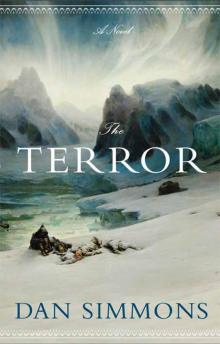 The Terror
The Terror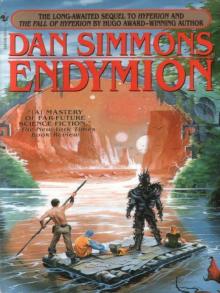 Endymion
Endymion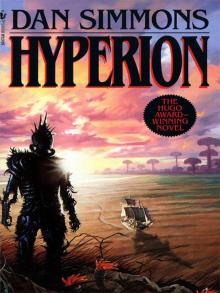 Hyperion
Hyperion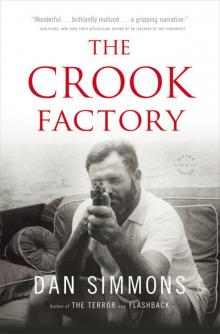 The Crook Factory
The Crook Factory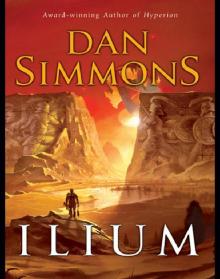 Ilium
Ilium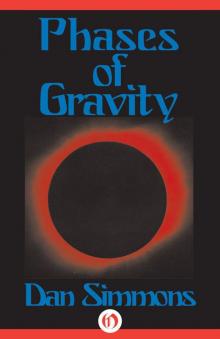 Phases of Gravity
Phases of Gravity Hardcase
Hardcase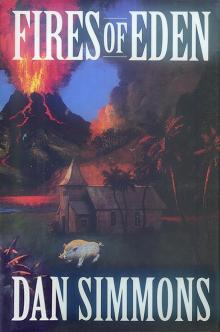 Fires of Eden
Fires of Eden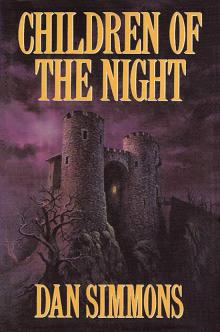 Children of the Night
Children of the Night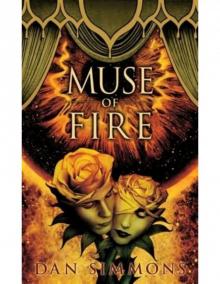 Muse of Fire
Muse of Fire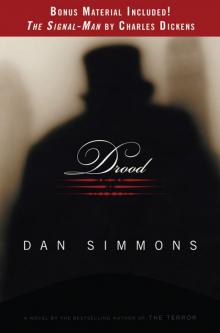 Drood
Drood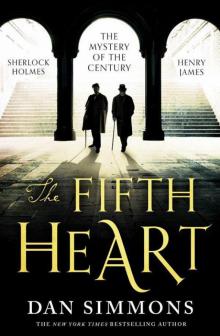 The Fifth Heart
The Fifth Heart Carrion Comfort
Carrion Comfort The Hollow Man
The Hollow Man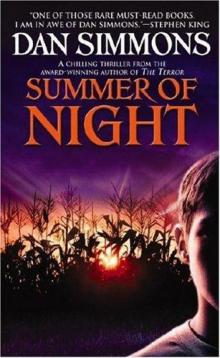 Summer of Night
Summer of Night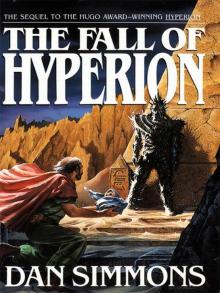 The Fall of Hyperion
The Fall of Hyperion Black Hills
Black Hills A Winter Haunting
A Winter Haunting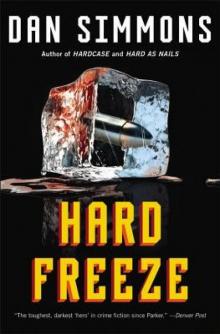 Hard Freeze
Hard Freeze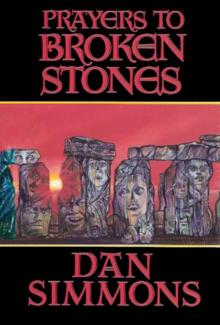 Prayers to Broken Stones
Prayers to Broken Stones Hard as Nails
Hard as Nails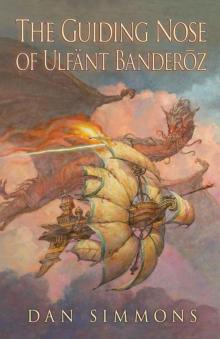 The Guiding Nose of Ulfant Banderoz
The Guiding Nose of Ulfant Banderoz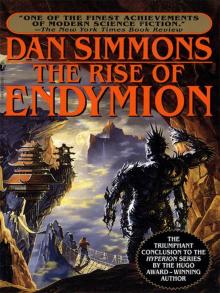 The Rise of Endymion
The Rise of Endymion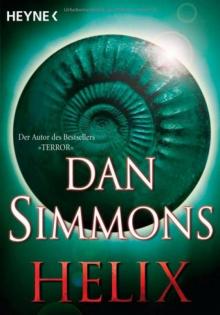 Orphans of the Helix
Orphans of the Helix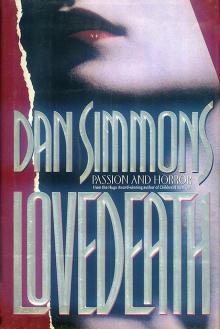 Lovedeath
Lovedeath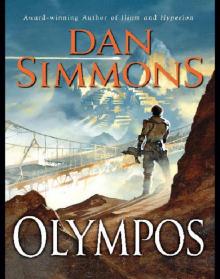 Olympos
Olympos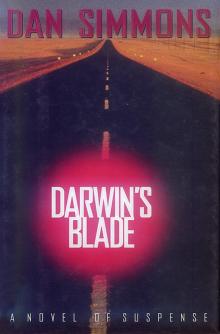 Darwin's Blade
Darwin's Blade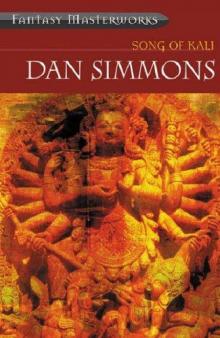 Song of Kali
Song of Kali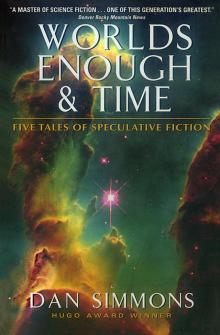 Worlds Enough & Time: Five Tales of Speculative Fiction
Worlds Enough & Time: Five Tales of Speculative Fiction The Abominable
The Abominable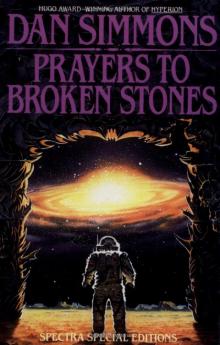 The Death of the Centaur
The Death of the Centaur Hard as Nails jk-3
Hard as Nails jk-3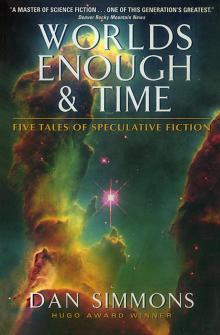 Worlds Enough & Time
Worlds Enough & Time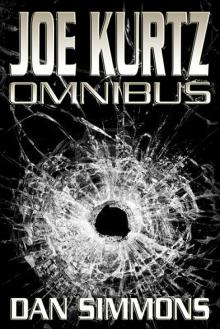 Joe Kurtz Omnibus
Joe Kurtz Omnibus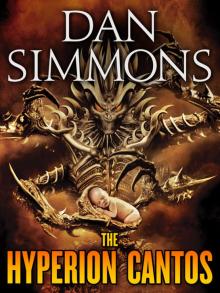 The Hyperion Cantos 4-Book Bundle
The Hyperion Cantos 4-Book Bundle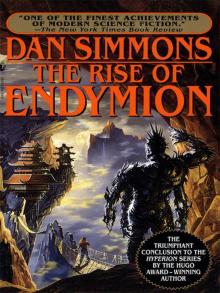 Rise of Endymion
Rise of Endymion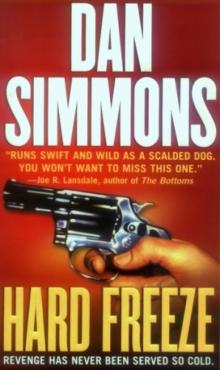 Hard Freeze jk-2
Hard Freeze jk-2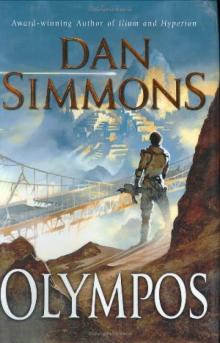 Olympos t-2
Olympos t-2 The Abominable: A Novel
The Abominable: A Novel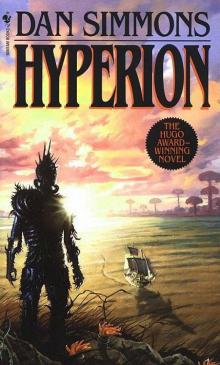 Hyperion h-1
Hyperion h-1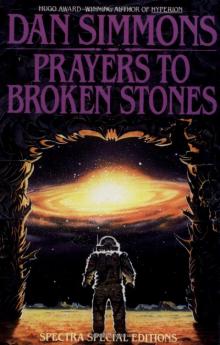 Remembering Siri
Remembering Siri Black Hills: A Novel
Black Hills: A Novel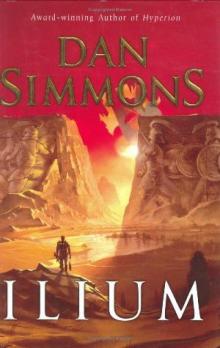 Ilium t-1
Ilium t-1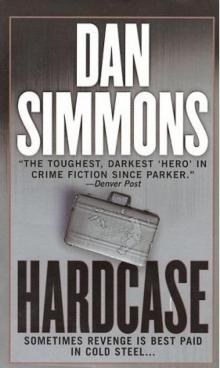 Hardcase jk-1
Hardcase jk-1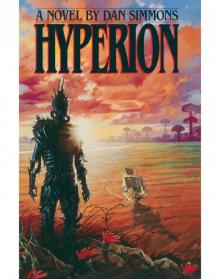 Hyperion 01 - Hyperion
Hyperion 01 - Hyperion